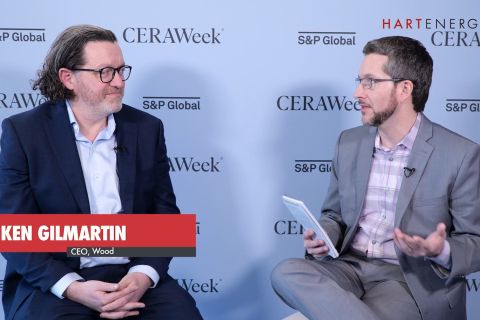Pipeline incidents are a reality that can adversely affect the industry. The aftermath of these events leaves companies and accident investigators sifting through mounds of paperwork, spending months deciphering underlying causes in a historically paper-based industry.
However, there is a new system on the market aimed at simplifying these sometimes-complex puzzles—as well as routine pipeline repairs and management.
TG Mercer's digital tracking system SpreadBoss is a new tool that started as an offshoot of Texas-based logistics firm TG Mercer, a family business that spans four generations. The company, which began in 1910 hauling pipe with a team of mules, has acquired a century's worth of pipeline experience, which—according to the company—helps them "in understanding the challenges their customers face, and finding effective, affordable ways to address them." Today, TG Mercer is attempting to address a keen industry need: a company's ability to have all pipeline data streamlined and instantly available.
"We've seen an evolution in the pipeline industry," says Mack Mercer, vice president of marketing. "A year ago pipeline tracking wasn't on a lot of people's radar, but now it's one of the first things on their minds."
Mack Mercer has been in this industry a long time and has no shortage of stories. Many of which, he adds, led to the idea of the software program. "We were working on large projects where we saw a lot of surplus pipe; it was considered surplus because they couldn't identify the pipe," says Mercer. "Pipe loses about 90% of its value when you can't identify it, so we are talking about a waste of tens of thousands of dollars.
"Also, we've been on projects where we saw clients get on helicopters and fly from yard to yard to try to find pipe. That's a huge expense. I've seen engineers and accountants out in the field, crawling around in the pipe trying to inventory and identify it."
SpreadBoss stores a company's pipeline data within a single system, eliminating the need for stacks of paperwork. Octavio Morales, TG Mercer's director of field technologies and SpreadBoss lead creator, says the system allows for traceable and verifiable pipeline data.
"One of the overriding aspects of the system is to allow transparency for the pipeline owner of all aspects of the pipeline," says Morales. "So, whether in construction of the actual materials or construction of the pipeline, we use our own secure web server to give them real-time access to all that information on a 24/7 basis."
That real-time access, Mercer notes, can aid in an industry where safety and security have become a hot-button topic. Since 2007, pipeline incidents have led to 47 fatalities and caused more than $2.5 billion in property damage, according to the Pipeline and Hazardous Materials Safety Administration (PHMSA). Because of this, federal regulators have communicated the need for more stringent tracking guidelines.
"We are seeing an evolution in PHMSA, where they are being more stringent in the fact that people better be able to verify and trace their pipe," says Mercer. "We haven't seen them hand out fines, but they are communicating at these seminars and industry events that you better have your pipe traceable and verified."
The Pipeline Safety Improvement Act of 2002 dictates that PHMSA issue regulations requiring that natural gas pipeline operators develop Integrity Management Programs. When handling pipe, Mercer notes, it is imperative that an operator, along with the PHMSA-mandated Integrity Management teams, knows its history to avoid accidents. Knowing who made it, what it is made of, ensuring protection measures are in place and how long the pipe has been in the ground can all be sourced through this system.
In addition, access to a pipe's unique heat number gives SpreadBoss users a chance, Morales adds, to prevent potential incidents. Often found printed on pipes, a heat number is an identifying figure based on the metallurgy of the pipe.
"By allowing customers to do a query, or a search, based on a heat number they can find all the pieces in their pipeline affected by that same heat number," says Morales. "They are able to proactively look for issues if they already know that a particular heat number is causing problems. They can find that same material in the pipeline, thus, potentially saving them from explosions or other issues."
Another important variable to the industry is cost effectiveness and, according to the company, SpreadBoss assists in this through "avoiding unnecessary purchases, reducing personnel costs in the field and cutting down on shipping shortages."
According to Morales, SpreadBoss makes all this possible with radio frequency identification (RFID) technology. Coupled with standard barcode tags, the software is able to transmit data through a web service to TG Mercer's own password-protected system. The software allows clients to have all pipeline information readily available.
The service also offers a client the ability to produce information that can be used in company business reports. The local weather, which any midstreamer knows is vital, is also available as a customizable feature.
"I envision the client can take bits and pieces in and out of that dashboard as needed," Morales says. "It's based on the function of what they have working with us, but if they have multiple sides of their business that we are helping them with then they can move those pieces so it is completely customizable to what they want to see."
To ensure that all of this information is secure, Morales has designed a process that makes any breach of security virtually impossible.
"We do multiple backups in separate locations of the actual working system, and then we have a backup to the actual system itself," says Morales. "So technically, there are four backups. Then the information is encrypted."
So, given it is a new product, what is the company's sales pitch?
"My point to potential customers is, you're going to make the regulators happy because you are going to meet what they want, and even go beyond it because it is streamlined," Mercer says. "You are going to contain your costs by minimizing the amount of surplus pipe and minimizing accidents because you are going to handle your pipe less.
"We took a chance; we stuck our necks out there and spent several million dollars perfecting this. When we started we didn't know if it would work and if there would be a market for it, and there is a market for it, and it works really well."
While Mercer doesn't want to divulge customer names, he did confirm midstream companies are using the product. "We are using it now on a 1,000-mile project, and it's one of the top two projects in the country right now," he says. "We field tested it at length, we knew it was working well in our field test and used it on a couple of small projects but this is the largest project we have used it on, and it is working beautifully."
If such a technology works then it could potentially be very useful, says Bill Gwozd, vice president of gas services at Ziff Energy, a consulting firm with offices in Houston and Calgary.
"Pipeline detectives can deduce why a pipe failed, analyze that and determine if that one failed where other failures may occur," he says. "Therefore, when the safety board comes along in 10 years, they may recommend that you test five other pieces of pipe if they are corroding just as fast. You can pinpoint where it came from much better rather than relying on other records.
"The ability to flag, tag and check the composition—when it was made, where it was manufactured—can give you clues as to where the problem came from. It can help deduce and provide key technical information on short notice. A long time ago, we didn't have that, we'd have these accidents, and the wrong people would get blamed or you just didn't have knowledge of all the pertinent and important information. However, if you tag them all, then you'll know all that you need to know."
It took three years to get SpreadBoss 1.0 off the ground; today the company is offering version 1.29, with the vision that, Morales notes, as the industry changes so will the software. However, according to Morales, they always keep one goal at the front of their minds: accuracy.
"That is a very small word which means a lot, especially with what we are doing," he says. "The accuracy of everything that we do adds up. We offer our clients a product they feel confident about and confident that the information they have is accurate."
Recommended Reading
Exclusive: Despite Complexities, Carbon Capture has a 'Huge' Opportunity
2024-04-03 - Ken Gilmartin, the CEO of engineering company Wood, shares the importance of digitization's role in traditional oil and gas and the energy transition, and overcoming challenges facing carbon capture, in this Hart Energy Exclusive interview.
Romito: Net Zero’s Costly Consequences, and Industry’s ‘Silver Bullet’
2024-04-22 - Decarbonization is generally considered a reasonable goal when presented within the context of a trend, as opposed to a regulatory absolute.
1PointFive, AT&T Enter Carbon Removal Pact
2024-03-13 - 1PointFive said it is also participating in AT&T’s Connected Climate Initiative to collaborate on carbon removal solutions like direct air capture.
US Geothermal Sector Gears Up for Commercial Liftoff
2024-04-17 - Experts from the U.S. Department of Energy discuss geothermal energy’s potential following the release of the liftoff report.
Enough! Consumers Say They’re Overserved on Energy Transition, EY Finds
2024-02-11 - Two thirds of energy consumers are unwilling to spend more time and money to be sustainable, Ernst & Young reported.





